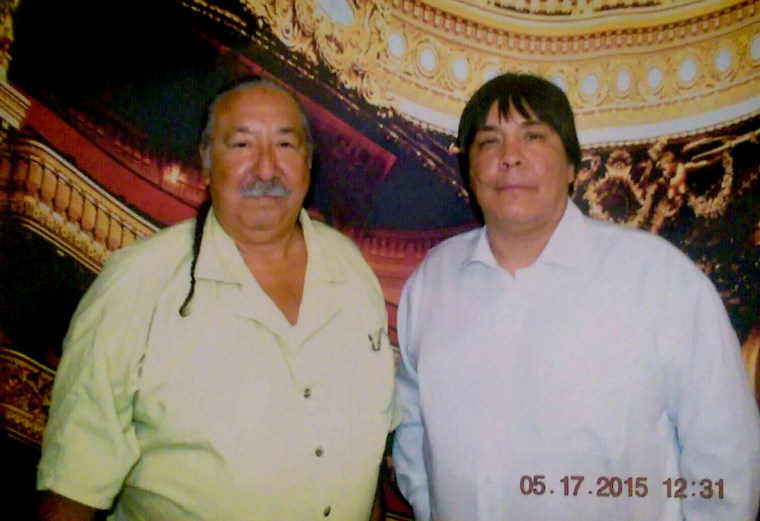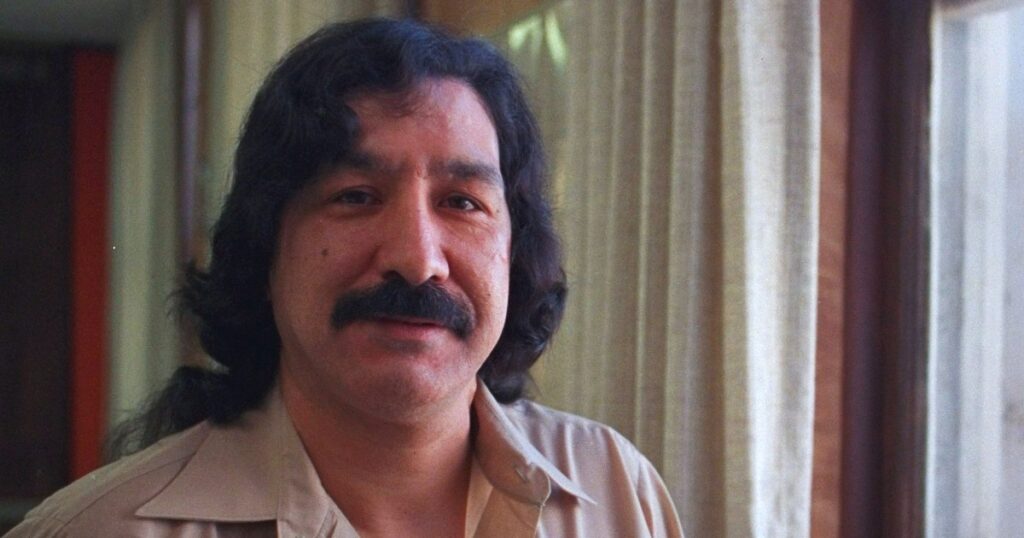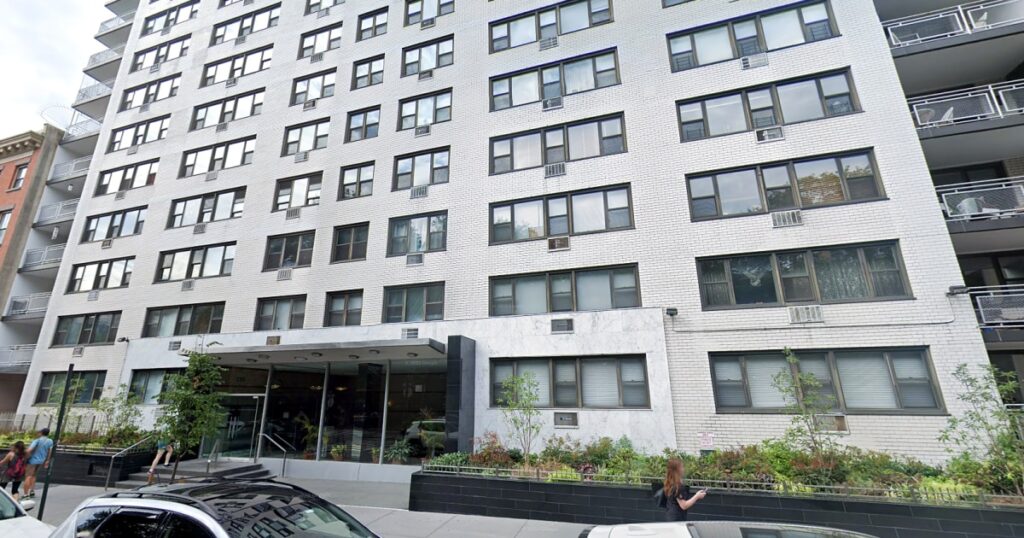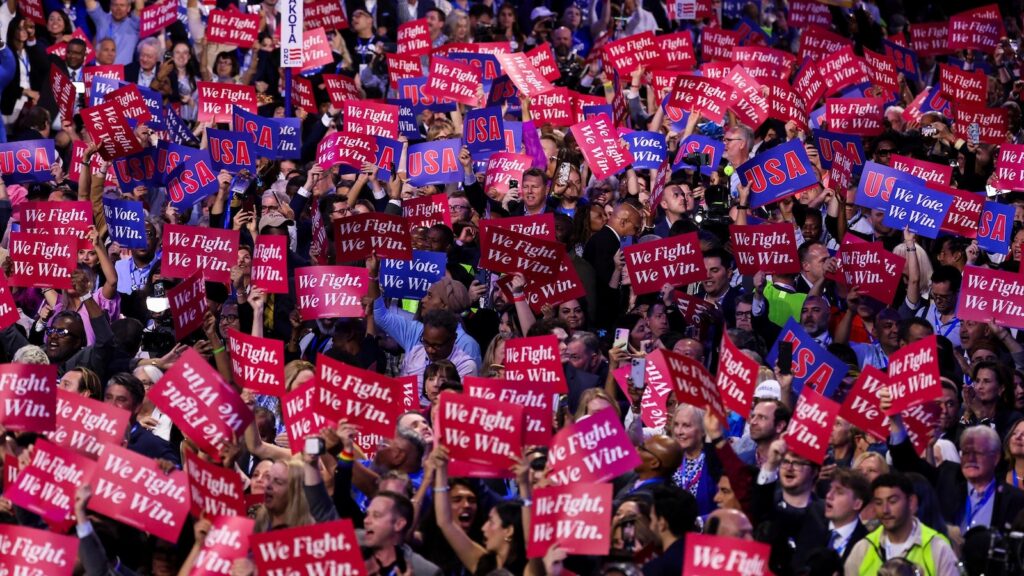Leonard Peltier, the Native American activist who has always maintained his innocence in the killing of two FBI agents 50 years ago, was released Tuesday morning from a federal prison in Florida after former President Joe Biden commuted his two life sentences.
The act of clemency permits Peltier, who is 80 and has been in declining health for years, to serve his remaining days on home confinement.
Peltier is being transferred to his birthplace in North Dakota, where he is a citizen of the Turtle Mountain Band of Chippewa, and will be welcomed with celebrations to “reconnect with his home community and adjust back into life among his people,” the NDN Collective, an Indigenous-led advocacy organization, said in a statement.
“We made a commitment to free Leonard Peltier and bring him back to his homelands — this is us fulfilling that commitment,” Nick Tilsen, the organization’s founder, said.
The federal Bureau of Prisons declined to comment prior to Peltier’s release, citing security and privacy reasons. Inmates in home confinement remain under BOP custody and are typically subject to conditions that limit their travel and activities; require drug and alcohol testing; and may involve electronic monitoring equipment to enforce curfews.
The extent of the rules on Peltier were still being worked out, but his age and health should be taken into consideration, said Jenipher Jones, the lead lawyer in Peltier’s case.
She added that he would be receiving medical attention upon his release as he struggles with ailments, such as diabetes, hypertension and partial blindness from a stroke.
“He’s been subjected to medical negligence for nearly 50 years,” Jones said. His release “gives him a chance at a life, at a humane existence, and the ability to more acutely engage with his culture, with his religious practices and with his sacred practices.”
Over the decades, Peltier’s case has drawn prominent support from international human rights groups and civil rights icons, including Coretta Scott King; religious leaders, such as Pope Francis and the Dalai Lama; and congressional lawmakers and celebrities.
But Biden’s decision, which came on his final day in office, was also condemned by law enforcement groups who said Peltier was unremorseful in the deaths of FBI agents Jack Coler and Ron Williams.
“Mr. President, I urge you in the strongest terms possible: Do not pardon Leonard Peltier or cut his sentence short,” then-FBI Director Christopher Wray wrote to Biden in early January as the president weighed whether to grant clemency.
Wray also opposed Peltier’s request during a hearing last year to be released on parole. The bid was denied.
Coler and Williams were killed in June 1975 while on the Pine Ridge Indian Reservation in South Dakota, where they were attempting to arrest a man on a federal warrant in connection with the theft of a pair of cowboy boots, according to the FBI’s investigative files.
Peltier was a member of the American Indian Movement, a grassroots activist organization that began in Minneapolis in the 1960s to challenge police brutality and the oppression of Indigenous rights. He was at Pine Ridge in the wake of a drawn-out protest two years earlier at Wounded Knee, South Dakota, where armed AIM activists and Oglala Sioux tribal members had occupied the town and clashed with federal law enforcement officers. Two activists were killed.
On the day Coler and Williams arrived at Pine Ridge, they radioed that they had come under fire in a shootout that lasted 10 minutes, the FBI said. Both men were fatally shot at close range.
Peltier was identified as the only person on the reservation in possession of an AR-15 rifle that could fire the type of bullet that killed the agents, according to investigators.
But dozens of people had participated in the gunfight; at trial, two co-defendants were acquitted after they claimed self-defense. When Peltier was tried separately in 1977, no witnesses who could identify him as the shooter were presented, and unknown to his defense lawyers at the time, the federal government had withheld a ballistics report indicating the fatal bullets didn’t come from his weapon, according to court documents Peltier filed on appeal.
The FBI contended a subsequent testing of shell casing evidence did match extractor marks from a casing retrieved from the trunk of Coler’s car with the AR-15 associated with Peltier.
Jimmy Carter was president when Peltier was convicted at trial in 1977 for the agents’ murders. Two years later, Peltier was involved in a prison escape in which he received an additional five-year sentence.
James Reynolds, the U.S. attorney whose office had handled the prosecution and appeal of Peltier’s case, later became an advocate for his release, writing to various presidents, including Biden, to grant clemency.
He said he altered his views after taking into account the questionable evidence in such a chaotic setting when the crime occurred, the acquittal of Peltier’s co-defendants in their own trial and the historic mistreatment of Native Americans by the federal government.
“The case is just a tremendous miscarriage of justice, in my opinion,” Reynolds, who was appointed by Carter, said in a phone interview. “I realized that it wasn’t right what they did to Leonard. Enough was enough.”
Peltier told NBC News in 2022 that he wanted to clear his name in a new trial.
Jones, the lead lawyer, said she believes “any detention of Leonard is unlawful,” and would move forward with appeals in his case.

Peltier’s oldest son, Chauncey Peltier, was among those on Tuesday awaiting official word that he was out of prison.
Chauncey Peltier, who lives in Oregon, said he plans to reunite with his father next month in North Dakota after last seeing him during a prison visit in 2015.
He said he was grateful for those who worked behind the scenes to push for his father’s release, and ultimately, to Biden for intervening.
“He corrected an injustice,” Chauncey Peltier said. “He doesn’t know how much this has meant to the family.”



